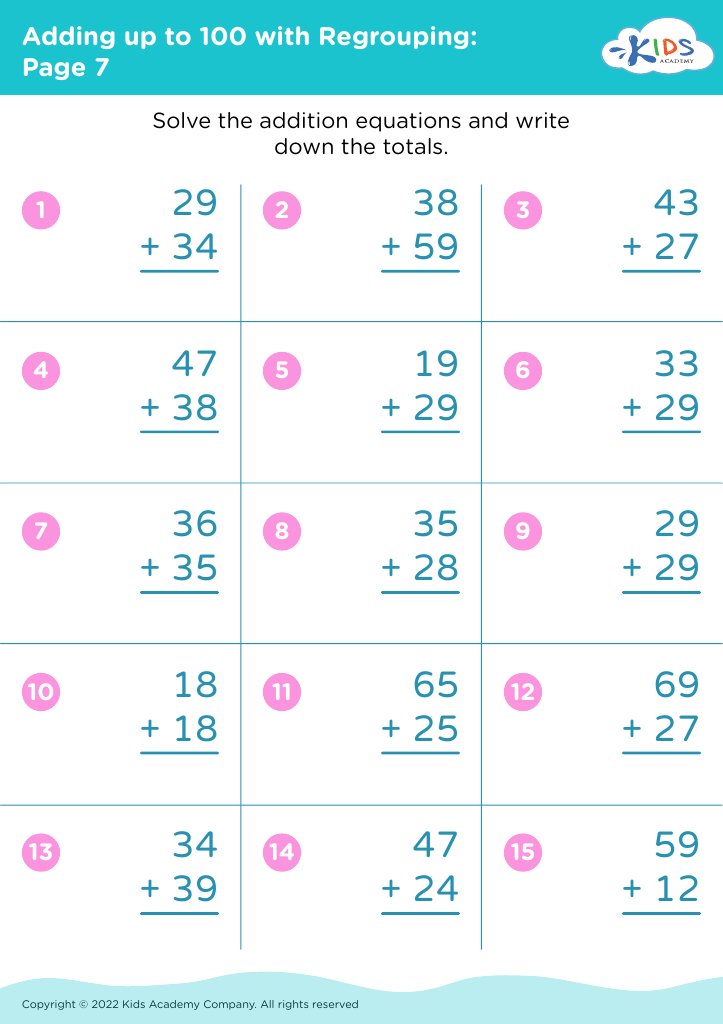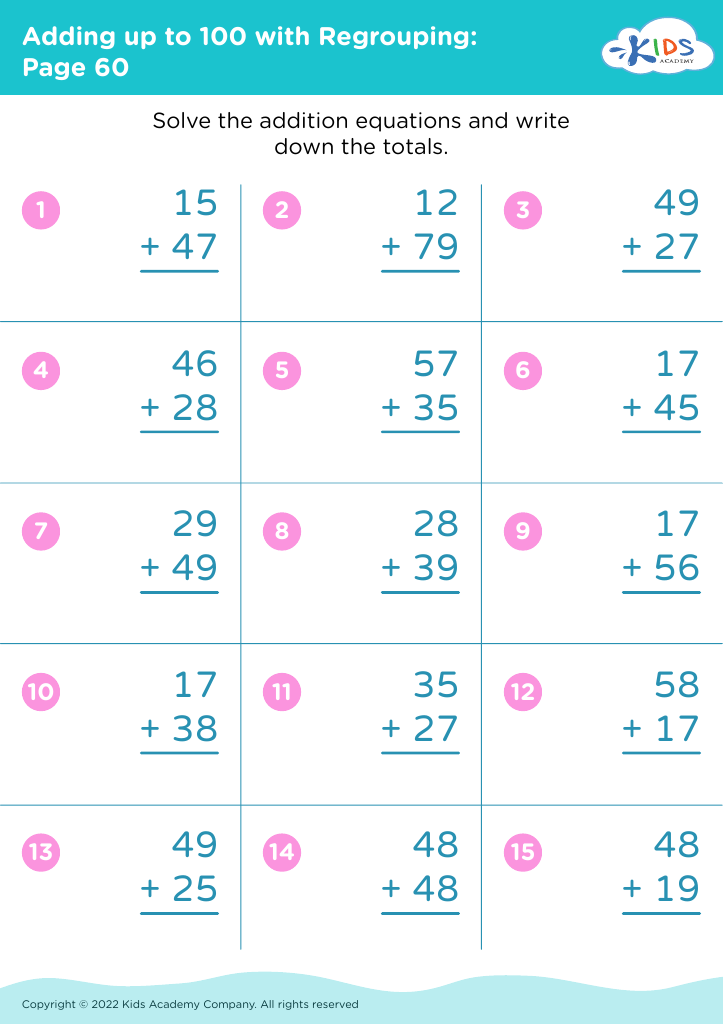Basic Addition Skills Adding up to 100 Worksheets for 8-Year-Olds
5 filtered results
-
From - To
Introducing our "Basic Addition Skills: Adding Up to 100 Worksheets" designed specifically for 8-year-olds! These engaging printable worksheets provide a fun and interactive way for young learners to master fundamental addition concepts. Featuring a variety of exercises, your child will practice adding numbers together while building their confidence and proficiency. Ideal for reinforcing classroom learning or for use at home, these worksheets will help nurture essential math skills. With colorful designs and challenging problems, your child will enjoy every minute spent sharpening their addition abilities, all while working towards the goal of mastering addition up to 100. Start their math journey today!
Basic addition skills, especially mastering sums up to 100, are crucial for 8-year-olds for several reasons. Firstly, these skills form the foundation for more complex mathematical concepts that they will encounter in the future. A strong grasp of basic addition fosters confidence and a positive attitude towards mathematics, making children less anxious when faced with more challenging topics like subtraction, multiplication, and division.
Secondly, addition plays a significant role in daily life skills. Whether it's budgeting, cooking, or time management, successful navigation of real-world scenarios requires solid arithmetic abilities. Thus, parents and teachers should ensure that children practice addition regularly to encourage practical application of their skills.
Furthermore, achieving proficiency in basic addition can enhance children's problem-solving and critical thinking skills. As they learn to manipulate numbers, they develop logical reasoning capabilities essential for academic success across subjects.
Involving parents in this process through supportive activities and games can create a nurturing learning environment, reinforcing those skills. By prioritizing these foundational skills, parents and teachers ensure children are not only prepared for immediate academic challenges but are also equipped with essential life skills that will serve them well into adulthood.











%20(1).jpg)








